by Anamitra Arunabha Dasgupta
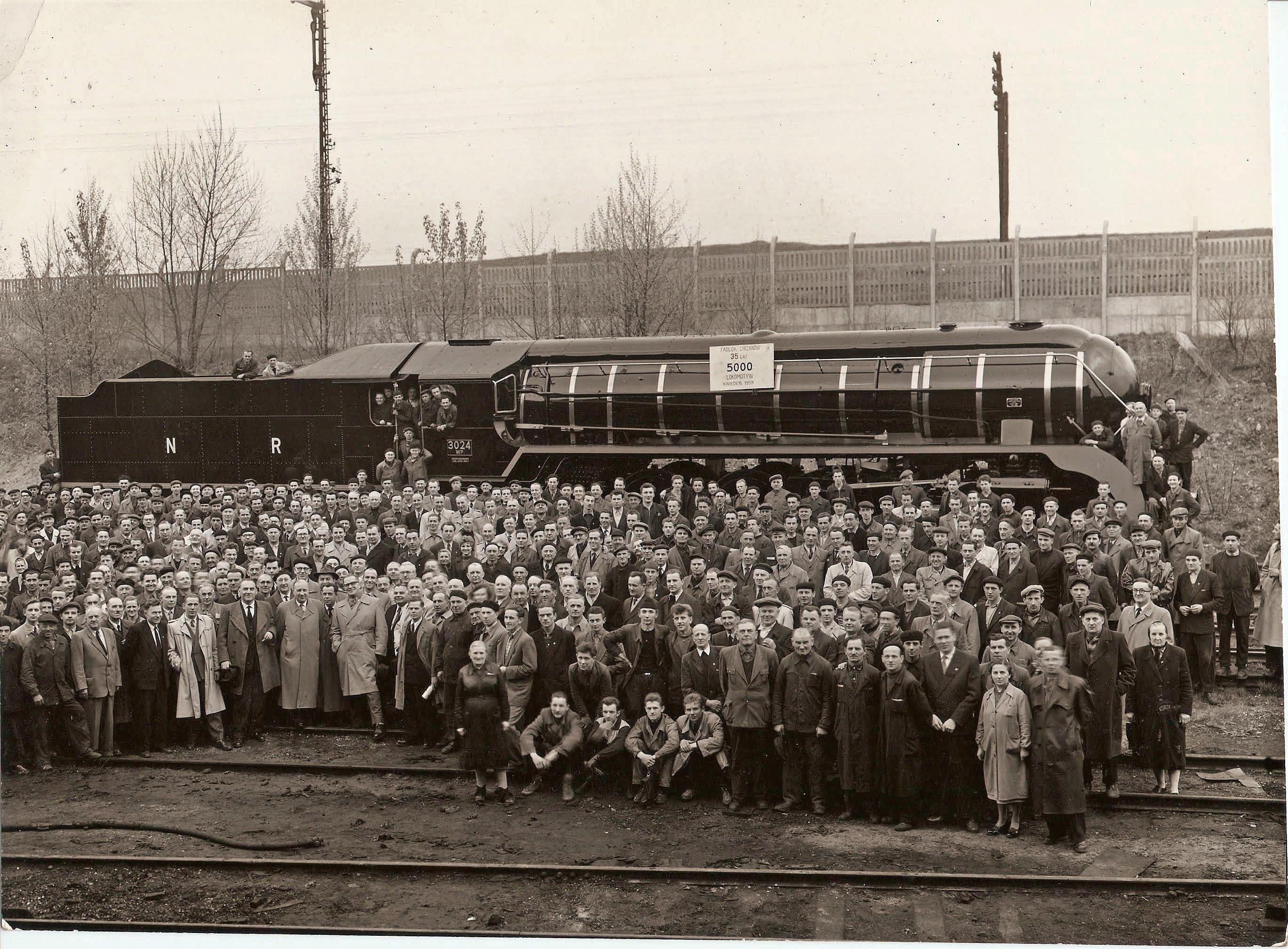
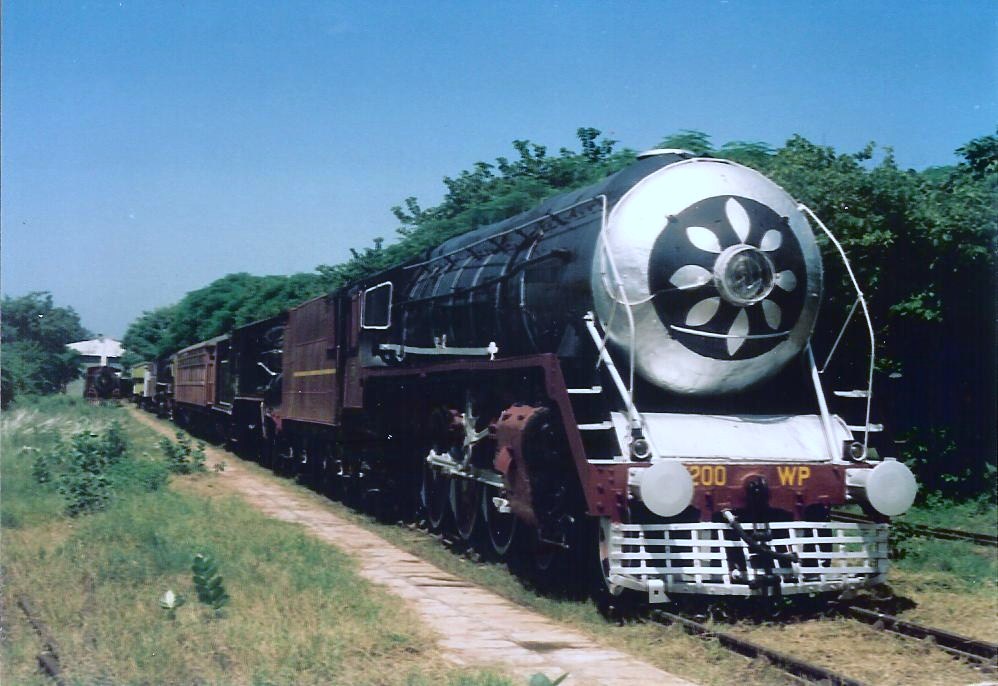
Prelude
Our country constitutes an early canvas upon which rail technology made significant advances, not only in usage, but also in spread. As consequence to these early advances, and well-considered policies to govern railways, we find, today, that we possess one of the largest railway networks of the world; one of the best run, considering its behemoth proportions; one of the most varied, even through efforts of standardization; unique in its operational precepts; glorious, in its chronicles, though interspersed with uncountable tragedies that we Indians, as sons and daughters of an ancient civilization, habitually ignore, for we have undergone many sorrows; and have learned, then, to look upon life and its vicissitudes with compassion without heartache; and partake thus, of many simple joys, in many degrees of detachment. So, Indian Rail remains India’s most beloved choice of transportation; the one upon whom Indians repose such dependence, that, even should our Gods fail us, our railways shall not.
An exhaustive history of the India Railways is not within the scope of this post; hence, I shall restrict myself to addressing the steam engines in the photographs that accompany this post. Ladies and gentlemen, what you observe constitutes the Indian Rail WP Class Locomotive. It remains India’s most iconic and most beloved class of steam locomotives; in days whence it attained fame and occupied a place of prominence, it was also known as “Canadian Steam”. It was the largest class of streamlined steam locomotive built anywhere in the world; one of the most powerful; could haul a 900 ton train at 70 miles per hour; occupies a central place as one of Indian Rail’s greatest success stories; was originally designed and built as “the train of tomorrow”; was technologically advanced; and yet, simple; and who does not recall that iconic, domed bullet nose? Let us then expand upon our story.
Wide Pacific, Indian Railways – The Engine
“WP” stands for “Wide Pacific”. The classification of “Wide” indicates that this was an engine for the Indian Broad Gauge, or, rails incorporating a width of 5 feet 6 inches; or 1676 millimetres. The letter “P” stands for “Pacific”. The prototype, built in 1947 by Baldwin Locomotive Works, United States, was type-rated as WP/P, or WP/Prototype; of these, 116 were produced. Onward, they were built by the Canadian Locomotive Company and by Montreal Locomotive Works, Canada, which together built 320; then Fabryka Lokomotyw, Poland, which built 30; and another 30 was built by Lokomivfabrik Florisdorf, Austria; and lastly, a prolific number produced by Chittaranjan Locomotive Works, India, which built 259 locomotives in all. The entire production cycle lasted through 20 years, between 1947 and 1967; the effectiveness of the design is attested by the sheer number of locomotives built – 755 in 20 years.
We cannot easily relate to numbers, unless told, that the total number of WP locomotives built by India alone, if coupled one behind the other, would constitute an unbroken train 6.1 kilometres long. If we conducted the same experiment with the entire number of WP locomotives built, we would have a train, unbroken, 17.8 kilometres in length. This however is arcane fascination; for the real magic remains in how these engines were run; a catalogue of sheer intuition conjoined with domain knowledge; of sheer, brute competence; of self-sacrificing and yet detached devotion unto duty; of hours of loneliness in exhaustion; also in exultation of knowledge that extraordinary lives were being lived; that nothing was mundane when a Driver was rendered as a natural extension of an awe-inspiring beast of legend which Providence had granted unto him to command.
This engine had a wheel configuration, also known as “Whyte Configuration”, of 4-6-2. This implies that if you saw it from one side, either side, the engine would show 2 regular wheels just aft of the fender and lifeguard; then, 3 large driving wheels underneath the boiler; and another regular wheel beneath the Driver’s cabin, just behind the firebox and grate. The engine, with tender, was 77.6 feet long; and exerted a total empty weight of 194.3 long tons upon rails, again with tender; engines made in India were weightier by 5 tons. Regular wheels were 3.7 feet in diameter; and driving wheels, 5.7, or 67 inches. Filled up, the engine-tender carried 15 long tons of coal and 25000 litres of water. Within the boiler, the total heating surface within superheaters contained an area of 271 square metres; boiler pressure was maintained, at its most optimum, of 251 pounds per square inch. Driving cylinders were 20.25 inches in diameter; 28 inches long; two on each side of the engine.
The WP Class Locomotive was especially suitable for Indian Coal, which is high calorific. When used in the production of metal, Indian coal is also known as “anthracite”; tends to be glossy, black in colour; burns with a fierce, white heat; has a high ash content.
The Principle
How is such a steam engine driven? I am afraid that this question may not be answered fully; not even if documented in thousands of pages; for an engine, when driven, other than in its essential principles of locomotion, depends entirely upon the individual perspectives and standpoints of each Driver trained to drive such an engine in varieties of different conditions. In short, every Driver had his own secrets as to how to extract the greatest effort from his engine. Thus every Driver had his own set of legends; and all claimed to be able to communicate with his engine as though by some mysterious, supernatural connection; and providential dispensation.
Let us try and consider driving fundamentals.
Fuel, or coal, is burned in a furnace; and the heat directed into a number of long pipes containing water through the length of the boiler; steam thus forms; and as it forms, increases in volume; is in turn firmly constrained in the limited spaces of these pipes, which are known as “superheaters”; thus increasing exponentially in pressure and temperature. In the meanwhile, it is incumbent to ensure that the furnace or firebox does not lose its efficiency; this is done through ingenious contrivances known as the “blower” and the “damper” along with the very specialised task of coaling the firebox; thus, is heat evenly spread through the entire superheating structure, pressuring the boiler as quickly as possible into its operating pressure, which, in the case of the WP locomotive, is 251 psi. The firebox is lined with bricks or with ceramic; a metal lining is entirely ill-suited, for it would melt in the incinerating heat.
Driving wheels, those large ones, are also known as “drivers”. They are driven by a set of levers, of which we are all familiar – indeed, these constitute one of the essential romances of steam engines along with the rush of hissing steam and bellowing smoke. These levers, also known as Connecting Rods and Coupling Rods, transforms the latent energy of high pressure steam into its potential; transferring this force unto the wheels. They are connected in an intricate co-arrangement between wheels and driving cylinders through another contrivance known as the “Walschaerts Valve Gear”; they are manipulated by the Driver through a mechanical device known as the “Reverser”, which manages the quantity of steam in the driving cylinders; this depends upon total train weight and speed. The optimum quantity of steam in the entire loop is controlled by the “Regulator”; or, in modern parlance, the Throttle. All of you are familiar with the Reverser; it appears as a large wheel in the Driver’s cabin; and we have often seen, in the days of our childhoods when steam engines were common, the Driver laboriously turning at the wheel. The Regulator was a large lever attached either to the engine firewall; or upon the floor of the engine. At more times than not, the Driver had to exert considerable physical force so to be able to move the Regulator in its desired direction and setting. Driving a steam locomotive was for the strong in body and the sound in mind.
The Reverser, operated by the Reversing Wheel in the Driver’s cabin, had three essential positions; 0-100% forward; 0-100% reverse; the zero setting indicated neutral; it all may be thought of as being parallel with the gear systems of a car. A heavy train, such as the Frontier Mail, started out from standstill at 75-100% forward Reverser; and at least 45% Regulator, opened incrementally. As the train accelerated, the Reverser was brought down, from 75-100%, depending upon line-speed, anywhere between 25-33% cut-off; and the steam Regulator reduced or sent up depending upon the engine’s design.
The WP locomotive operated in full efficiency at 60 miles per hour (96 Kmph); in effort to maintain this fast average, the engine was driven routinely at a speed of 68 (110 Kmph). The speedometer was marked up to 100 miles an hour; yet, the maximum safe speed for the engine was 74 miles per hour; no, it would not derail after this, but its running efficiency would drastically fall. The engine was at its most efficient in extended, uninterrupted runs, between 55 and 65 miles per hour, where, it is said, that it was a joy to operate. Its streamlined design, with that iconic, wide, fully oblate boiler with the extended bullet nose contributed to its efficiency. Who does not remember that evocative silver star that one saw from afar, as the engine approached?
WP engines were limited to mainline duty in the earlier years. Branch line duty fell upon lighter engines; or engines that incorporated the essential loading gauge and weight adherences. Some of the most famous trains that the WP Class traditionally hauled were the Bombay-Calcutta Mail, Vestibule Express, Taj Express and the Calcutta-Madras Mails. Of these, the Vestibule Express was fully air-conditioned; and also known as the “Air-Conditioned Express”. It served the trunk-route between Calcutta and Delhi. I am told that it had 12 coaches or bogies; 8 passenger cars composed of First and Second Class Chair Cars and First Class Sleepers; one Mail Car, Pantry and Dining Car; and at the end, one EOG, also known as the “End of Generator”, which additionally served as the Luggage and Brake Van. The Vestibule departed Calcutta I think at 8:15 in the morning, from Platform 9, Howrah; reached Delhi the next morning at 6:15 AM – a run of 22 hours with stops at Durgapur, Jhajha, Patna, Allahabad and Kanpur. The Vestibule was renamed as “Poorva Express” some years after the advent of the Rajdhani Express; it is now hauled by a WAP-7 electric engine; traverses the same old route in the same time. To watch it fly past was a unique experience in 1974. In winter mornings, if one were to stand upon the platform at Asansol Station, one would hear that distinctive whistle from afar; and then, the famed bullet nose surmounted by the silver star would emerge from the winter mists and fog of Bengal, like a mythical one-eyed monster; and in a moment of terror, fly by in a thunder of wheels, sparks and smoke.
Heroes & Superhumans
The task of maintaining steam pressure and water levels in the boiler fell upon the Fireman; along with maintaining the furnace with an optimum fire. This was one of the hardest and most skill-intensive tasks ever known in the relationship between man and machine; consequently, an endlessly intricate dance between man and the open forces of nature, extracted with care to serve humanly tangible ends. While the Driver occupied the responsibility of locomotion, the Fireman laboured at the furnace, or firebox; to the boiler and its water-levels; and steam pressure. Using a set of levers known as “Small Ejectors”, “Large Ejectors”; Dampers and Blower, he fanned the flames; and he learned the art of “reading the fire”.
The art of reading fire constitutes a primordial human ability; where the intuitive realms of the mind are so deployed, to visually measure and judge flames and translate their potential into humanely comprehensible terms; thus preserving such a fire at its optimum, and serving the given task on hand. Superficially speaking, then, a red fire was a cool fire; an orange fire flecked with yellow was hotter; and a golden flame glowing white the best flame; while a bluish fire presaged catastrophe. Yet, these conditions were always interchangeable, depending upon what was being called upon the engine to accomplish. Did the Driver require a large fire when running along at 65 miles per hour? Or did he require a mammoth fire when starting out from standstill? How much coal shall cause fire to burn brightly? Or how much coal shall smother fire into a smouldering mass of dead ash? Then, when does one open the firebox doors and keep it open? When must they be firmly shut? When must they be opened or shut in degrees? What is a catastrophic blow-back? What of the water? How is a natural and self-complementing balance between water and steam achieved in a boiler, so as to attain the greatest efficiency, and consequently, the greatest ease of running? And then, what of smoke? How does one read the smoke that emanates from the bowels of the engine, and judge as to how the engine performs? Yes, it was not enough to read fire alone; for one had to know of the mysteries of smoke to ultimately intuit the “mood” of the fire; and the pedigree of the fuels that fed it. Indeed, one had to learn of the way in which all the elements acted, so as to expand one’s humanity into an extension of a giant, living, breathing machine; a fiendish one-eyed colossus.
While driving, the hardest task was pulling out of standstill, especially if the train was a heavy one; and if on a rising gradient. Not only was this hard upon the Driver; but a task bordering upon the intolerable for the Fireman. Start-out was accompanied by a pestilential phenomenon known as “wheel-slip”; because pressurised steam generates immense force, the driving wheels of a steam engine produced torque far more than necessary; so the driving wheels would suddenly rotate alarmingly, or “slip”, even when when the train was at a standstill, generating furious sparks and a smell of red hot metal. The Driver was required to immediately spray sand upon the tracks through jets placed in front of the driving wheels, so as to increase friction, and thus restore traction unto wheels. Spectators standing upon the platform and observing the Driver and the Fireman would see soot-blackened faces tight with concentration; in effort that only excellence demands, especially when crowned by responsibility that tolerated neither failure; nor fools. Wheel-slips took place more often during rains, when rails were slippery; or when the train was heavy, and the gradient – upward.
An engine running at line speed required constant effort from the Fireman; or, as the case was in India, from “Fire Men” – for every engine assigned long distance express duties carried two Firemen so as to spread responsibility, effort, and relief. The Fireman had to ensure that the smoke from the smokestack remain light grey in colour; for black smoke indicated inefficient burning of coal in the firebox; black smoke mottled with red sparks is not smoke, for it is a foul effluence composed of unburned coal dust and gasses that had failed at combustion. Therefore, he had to know, by the look of the firebox flames, and by the colour and volume of smoke, as to how much coal was too little; how much was just enough; and how much was too much.
So, the superficial rule of thumb in a well running engine was “a little coal, but often; some water, just enough, never all”. How much is a little coal? Well, it is about 8 even shovelfuls of fist sized coal, administered every 150 seconds or so into yellow flames; the flame had to be preserved yellow, glowing white; and the smoke from the stacks, grey, wispy, and not much. Water in the boiler was indicated by a large water-level-gauge in the centre of the engine firewall where all could see it clearly; essentially a large tube of squarish cross-section, with a prominent yellow and black refraction-level-marker running down the back. The water level remained at about three-quarters; the remaining empty space indicated the level of steam above the waters in the superheaters. This ratio was crucial; transgressing it would cause over-priming the boiler, leading to catastrophic boiler explosions; and if the fire was permitted to get out of hand in low water conditions, could lead to a total meltdown; a complete and unmitigated calamity; an inferno reminiscent of Nebuchadnezzar’s furnaces.
In cold countries of the northern hemisphere, live steam from the engine was directed by pipes through the entire train, so to preserve a delicious warmth within coaches. It could be -9°C on icy nights along the Warsaw-Vienna line. But within, as travellers slept, the temperature was +24°C; waters in all taps were warm. Steam heating made this miracle possible. India never had this need; moreover, our steam-engines did not produce ice to preserve travellers from the hellish heat of Indian summers. The age of air-conditioned coaches would take many years to manifest in India; for our civilization appears to live by the ethos that discomfort is the natural state of things; to struggle is noble; suffering, our fate; luxury, a sin; and essential human dignity, a damnable indulgence.
Two Firemen took turns to feed the fire. Which meant five minutes of physical rest from backbreaking labour, yet never to be expended in watching the scenery, but gainfully employed observing the smoke; paying unbroken attention to water-levels and steam-gauges ; taking action in re-filling the boiler in exactitude with the Large Ejector and preserving continuous pressure. Then in operating Small Ejectors, re-pressurising brakes using spent steam; and thus employed, never failing to monitor rail lines; and signal state. To my knowledge, Indian Rail never utilised mechanical stokers to feed coal from the tender into the firebox, relieving Firemen from the insanity of their duty. But other countries did. A mechanical-stoker was a heavy metal tube running between the coal tender straight to the furnace from beneath the engine footplate. This tube contained something akin to an Archimedes screw, which scooped up coal from the bottom of the coal tender, and transported it straight into the firebox. However, it was noted that “human stokers” – in short Firemen – did an immensely better job than any mechanical stoker ever possibly could. In the meanwhile, the Driver’s task was not limited to merely driving the train; for when he drove, he had to preserve a delicate balance between steam-demand and the speed of his train, so as never to overwhelm either Firemen; or the engine; and never, ever, fall below his running schedule.
All Drivers commenced their careers training as Firemen; graduated to Drivers at the end of a number of years, toiling away, thus, in the throes of inhuman labour, under conditions entirely grim. Then there were specialised Firemen who remained in their specialised responsibility throughout the course of their working lives; yet, they were, more often than not, crack drivers too. They assisted with very heavy trains that were hauled by multiple engines. They worked extensively in the Bombay-Nasik and Bombay-Pune Sectors, where they piloted Bankers up and down the Bhor, Thal and Kasara Ghats. Such was their ability, that they did not look at the speedometer even once during an eight hour run; for they knew, by the sound of the engine and the vibrations of the Reverser and Regulator, as to how fast they travelled; and they arrived at their way stations and destination upon the dot of the minute hand. In what they achieved, Drivers and Firemen habitually and routinely transgressed ever human functional limit; where bodies fail, minds take over; where the primacy of the mind remains supreme, very little remains in the realms of the impossible. These timeless heroes drawn from our unlovely land and its myriad peoples did not flinch from their duty, or treat their work as unwelcome impositions to which they were enchained; indeed, they looked forward to their work; they made scant complaint upon the nature of their tasks. Clad in soiled vestments, in overalls stained with sweat and blood, coal-dust and grease, they traversed the land through interminable hours, in rain and in shine; in the Stygian fogs of winter and the blazing purgatory of Indian summers, delivering their charges intact, and upon time. It is to our greatest and undying tragedy that there appears to be no everlasting recognition which remains visible in our country for Firemen and Drivers; no statue is known to stand in any city’s square; or in any railway yard or office in a land that worships idols by their millions. Postage stamps and thousand other impressions upon page after page of Indian annals exist that solely commemorate political figures or events; extinct traditions and religious inanities: but nothing firm or noble exists in recognition of the self-sacrifice, self-effacing devotion to duty and the sheer ability that Drivers and Firemen habitually exhibited in course of their labour; their labours of life, hope and love. Our country owes them a debt that it can never repay; moreover it strikes none in our country to embark upon such a venture, in which our railwaymen are granted posthumous recognition as the first amongst heroes upon whose deeds industrial India stands. As Indians, we tend to treat our history with scant regard; in sanctimonious neglect; in fatalist detachment that serves only to perpetuate our civilization’s wounds.
The Romance; the Journey
When I was very young, just about older than a toddler, my late father took us on holidays, often far away from Calcutta, usually toward the north of realm. We travelled express routes; all trains therein were hauled by WP Class Locomotives. My parents were positively organised; everything was packed before time in strapped leather suitcases; and the ubiquitous “Holdall”. My maternal grandmother, without whom my father was disinclined to travel, had my dinner made in her kitchen; this was carried in a round stainless steel container; and she carried flasks filled with water and hot milk for the baby, which was I, although two and a half years old. Not for me the delights of railway food, not yet. Bottled mineral water was unheard of in 1971; my parents and grandmother would make do with the water that was offered by the Railways in jugs and carafes. We would reach Howrah Station rather early; we were not obliged to travel afar in search of our platform, for all long distance express and mail trains of the day toward Delhi, Bombay and Madras were routed out of Platforms 8 and 9. These were special platforms, for betwixt these, the British had built an entire roadway for their lengths, that exited upon a car over-bridge at the engine end, thereby enabling travellers take their vehicles literally up to their coach. I recall my anxious excitement as our Ambassador entered Howrah station; and yes, the car, too, was assigned its own platform ticket. The air would be redolent of steam; broken by the occasional loud chuffing whoosh of a steam shunter as it departed some platform or the other close by, making its ponderous way back into Howrah’s voluminous yard; its sonorous whistle never failed to make me violently start, and fling my arms around the nearest adult. Coolies would be hurrying along; in my young eyes, they carried impossible weights; nothing has changed, for in my old eyes of today, they still bear crushing weights upon their backs and heads; how they accomplish their deeds constitutes yet another everlasting and unsung Indian art. There were many beggars upon the platform; they had gentle eyes as though the cruelty of poverty opened unto them an unbearable longing for compassion; and a heaven at the end of all tribulations upon which only the very poor are ordained to gaze. They approached with great hesitation; and upon the usual, cruel, wordless look, quickly retreated, forlorn; hurt beyond hurt; numbed beyond pain. As a baby, I watched stone-faced; and yet, my heart throbbed in irredeemable agony. Then, I was distracted by my grandmother’s gentle murmurings of prayer, as she sat back in the car, in its voluminous warmth, while we waited for our train to enter; my grandmother would have not missed her evening prayers even if she were going down in the Titanic. A whistle announced that something was approaching; a whoosh increasingly close; and our platform would be illuminated by the golden light of a powerful headlamp; for yet another steam-shunter would arrive; and trailing behind it, a precious burden, our train.
We travelled First Class. Though meagre of means, my parents remained aristocrats. Our ancient and royal heritage had long dissipated; but the call of heredity prevailed intact, leaving names and the stigmata of a forgotten pride; and a pride-fullness of elevated tastes. So it was away from the crowds that we travelled, isolated, but supremely warm and comforted, only as closely knit families are, that live lovingly in the most benevolent of proximities. The First Class Compartment was reddish; like a gleaming swathe of tastefully applied rust; but so was the rest of the train. The traditional British word for coach or compartment was “Bogie”. The cabins within were called “coupé”. Each bogie had up to eight coupés. The common one-sided passageway through the length of the compartment that we relate with today was totally absent; consequently, every coupé opened directly out unto the platform through its own door. Youngsters today are surprised to learn that railway coaches were often made of wood; as also of heavy metal; they they possessed eight to ten doors on one side, one for each coupé, broken by single large, grilled and curtained windows between doors. The train was so arranged and then so routed, that it would always travel with every stop arriving at its right side, for that is how every coach was arranged – doors to the right. Only on a journey between Puri and Bhubaneshwar have I travelled in a train that was decidedly strange; for its doors were to the left. Each coupé was built with its attached bathroom. This spanned the full breadth of each coupé; contained a porcelain commode; a shower and a basin; white or black painted wrought iron bathroom fittings loaded with towels and napkin; before my time, these were made of polished brass; considering what we are now used to, a luxurious bathroom unthinkable at present. Eight coupés per bogie meant eight bathrooms; and all of this resulted in a fairly heavy coach; or bogie. The quality of ride was excellent; yet, upon uneven, undulating country that entailed many turns, a pronounced rolling became evident. Most were unaffected by it. However, those prone to travel-sickness dreaded these occasions and the distress they brought. Light aluminium compartments dressed in tinsel plastic were still decades away. In the early 1970s, rail compartments of India were made of iron and steel; and some of wood.
We were ushered into our coupé by the Ticket Checker, attired in white; this courtesy was extended to all travelling higher classes. The skies above would be darkening; but tinged in red; a distant, low flash would presage another Bengal northwester; an even more distant redolence of rain permeated the air. After making sure that my mother and grandmother were installed comfortably on their lower-berth beds – upon crackling, starched white railway bedsheets – my father would hold me up in is arms and out we would go. An anxious look toward the sky, and a few polite words spoken with the Ticket Checker, father, clutching me to his heart, would walk toward the front of the train with rapid, measured steps; he thought it unkind to spare me the sights and sounds of our engine as it made its way from the yard, so to attach itself unto our train; a giant iron ingot breathing fire; enveloped in steam; and I recall, still, the heart that goes thump within a child’s breast upon that sight. The engine was a WP Locomotive. It arrived; it was not loud, for it was ear-splitting – its hiss. The phallic hood of a demonic snake breathing in with fathomless passion; breathing out nameless terrors. Forty nine years have passed, but these images wreathed with sounds remain fresh as though it were all just yesterday. The Driver’s cabin would glow spectrally yellow; the combined effusions of weak light-bulbs and an open firebox. A Fireman would glance our way; and when eyes met, white teeth bared in a smile through a face blackened with coal-dust. Another Fireman would be shovelling coal; or wiping his hands upon an old, worn cloth covered in greasy dust. Another anxious look at the sky; and a surreptitious look at his watch; and father would walk toward the front of that engine with its giant frontal dome – that bullet nose in the centre of which gleamed that headlamp; a single Cyclopean eye of a fallen-angel intent upon war; invoked from a realm of terrors; seen through smoke and the mists of falling eventide. Then, all of a sudden, the magic dwindled; for my father, with a few caressing words of tenderness whispered into my little ear, carried me back to our coach; our coupé. He climbed in; shut the door with a muted clang and locked it behind him; it had three sets of locks. He delivered me, a bundle, unto my mother; and brushed his shirt delicately, for he would be covered in a fine patina of coal dust; he would then vanish into the bathroom and emerge vested in white kurta-pyjama. Mother would clean my little face with a wet cloth; a crocheted handkerchief. Silence stealthily descended, for mankind had finished boarding the train. Then, that awe-inspiring whistle which never failed to startle me; and with nameless hisses and squeaks and the sound of metal rubbing against metal, the train began to move. I waited, with bated breath, to hear the first “clack” of a wheel as it traversed the cusp of the first rail joint of an everlasting journey that would last 14 hours.
Darkness falls; ditch-lamps glow mistily, for rain has begun to descend. There is thunder; far above our roof; crackling and angry. Father lowers glass panes; still, a cold wind blows in from somewhere, some chink, and with it, that unforgettable redolence of vapours of steam; and hot ash; and coal. We pick up speed slowly; the wheels begin their hypnotic song, their mesmerising cadenza. After the mammoth Calcutta yard was traversed, the train turned toward the north, and embarked upon attaining its line speed. This entailed a variety of operations carried out by the Driver and Firemen; 5-6, miles, or, between 8 and 10 kilometres would pass before line speed was achieved; yes, acceleration was gradual, almost imperceptible in a heavy train drawn by a steam engine. During the initial phases of acceleration, the locomotive would roar out an unearthly anthem; songs of a War-God as It rode into battle; that indescribably loud, chugging symphony, more rhythmic than any orchestra. It would envelope ones consciousness – it was impossible to escape; a passion-dance of sounds of wheels and engine. Out of rain-wet window panes, one would be mesmerised by flying steam and smoke, like ethereal wraiths and Valkyrie; tendrils of cloud flecked with red sparks. Then, as line speed was gained, sounds would diminish; smoke and sparks would recede, all replaced by a faraway hiss broken by the occasional roar. The first stop or way station was gained by eight in the evening; this was invariably Durgapur. As soon as the train stopped, turbaned bearers, clad in pristine white, would knock upon our coupé door bearing large pewter trays faded with old silver, upon which rested porcelain bowls containing dinner; and jugs of water; spoons and forks. In the realms of my memory, there remains uncorrupted by the rites of passage of time, the evocative memory of hot, hot curried mutton or chicken, or egg; lentils, salads and fry; and pudding – a bottle of Coca Cola was an additional treat, of which I was given a sip to imbibe. My food was served me; it composed a still warm medley made from home-made potatoes; and phulka, made of white flour; my grandmother invariably cooked so all could have some; therefore dinner was a mishmash of the ample. Dining over, all empty trays and their bowls and jugs and carafes were placed neatly upon the sideboard by the door; they were withdrawn, usually, at an operational stop which arrived just before it was time for bed. This operation, of serving dinner and cleaning up, during stops, by wordless individuals wearing white, still haunts me with unanswerable questions; and its seamless efficiency continues to cause wonder unto me – a wonder that I shall bear till the time arrives for a greater journey that I must undertake, as must all.
There were longer stops in the dead of the night; when all was silent, and all was still in the coaling and watering yard of a station seemingly deserted, till told that it was actually a large city. This was a substantially longer stop; watering took time and coaling the engine, an intricate operation that tended to be noisy. Engine lubrication was checked and reapplied – another crucially important task also known as “oiling”. Then the driving crew relieved and replaced by a new one; at times, even the engine was changed, replaced by another WP Locomotive.
Otherwise, the night was spent in deep slumber, broken by a visit to the bathroom; I slept the sleep of children, ensconced by my mother’s side upon a wide berth. The cold of winter nights left trails of condensate upon glass panes; the coupé was unheated, and though much warmer than the outside, still shivery. Yet, it was heaven under our quilts; that all encompassing sense of protective love and physical well-being palpable in degrees that we, as adults no longer know. I would lay still in that far country, now in the impossibly distant realms of recollection, looking up at the ghostly blue light that illuminated our coupé; the distant sounds of the engine and the nearer rumble and clatter of wheels – hypnotised by a waking dream for which there exists no parallel in the present age.
And there have been times when I have visited members of my family at Asansol; a coal town in Bengal, founded by the British. There, in winter nights, in that cold stillness, I would lay in a stone bedroom of an ancient British bungalow; and somewhere in the far distance, along the Asansol mainline, would pass a WP engine bearing a night train; chugging as it struggled to gain line speed quickly; that lone eye glaring into the dark. As its resonating throbs receded in the distance, there remained that whistle, which rode upon the inkiness of night, a primordial and plaintive cry that traverses the rim of darkness and shadows, a forgotten dream, the loneliest and most far away sound created by God to remind mankind of its own insignificance; and its irredeemably lost humanity.
Darkness
Driving a steam engine was achieved through intuition; the WP engine was no exception to this essential rule. Those times, those days were days when the human brain was expected to function at enhanced levels, unaided by computers, calculators or other electronic instruments. In such a bygone age, the human was pre-eminent; fate had charged him with his machines; it was he that commanded his steed. If strength of the elements were endowed unto his machine, then, the strength of intuitive knowledge was vouchsafed unto the man. For it was he who thought; thinking was the preserves of his brain; hence, he decided upon the best course of action. The machine then responded as man commanded it to; and Man and Machine became One. In the annals of human sojourns, untold billions of miles were thus travelled; and an infinity of discoveries made – for, then, that which travelled the Universe were not machines, but the Human Mind, which delved into every possible mystery that Providence has thought fit to place upon its way. So was humanity illuminated; and that constitutes our glory. Yet, after the glories of our voyages, we appear tired, for in our present Age, we have taught machines how to think. Consequently, we have not much left to do. Our own accountability reposes in circuit boards of plastic; we have absolved ourselves from the burden of responsibility; so we stare vacuously at cold electronic displays for comfort; our ancient morality lost; we no more are living beings, but shadows of life that repose in dark, dark shades.
A journey has ended forever. Nothing remains, now, for the destination is mundane. One looks at darkening skies again, and one wonders, that, what silver lining awaits, when even clouds go missing?
The End
Sources:
https://www.wikipedia.com, https://web.archive.org/web/20061113132424/http://www5.brinkster.com/sundar/WP.htm, http://www.irfca.org
Disclaimer:
The written content is claimed by Anamitra Dasgupta as his copyright. The Photographs used in the post are found freely on Public Domain. Anamitra Dasgupta does not claim any ownership of such photographs in said post. Said copyright is retained by their original owners as indicated in the sources. In the usage of such pictures, no copyright infringement is contemplated or intended.
Copyright@AnamitraDasgupta 2020
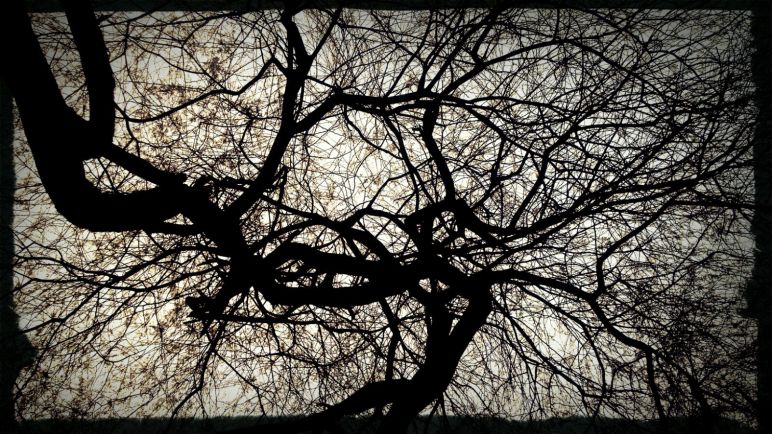
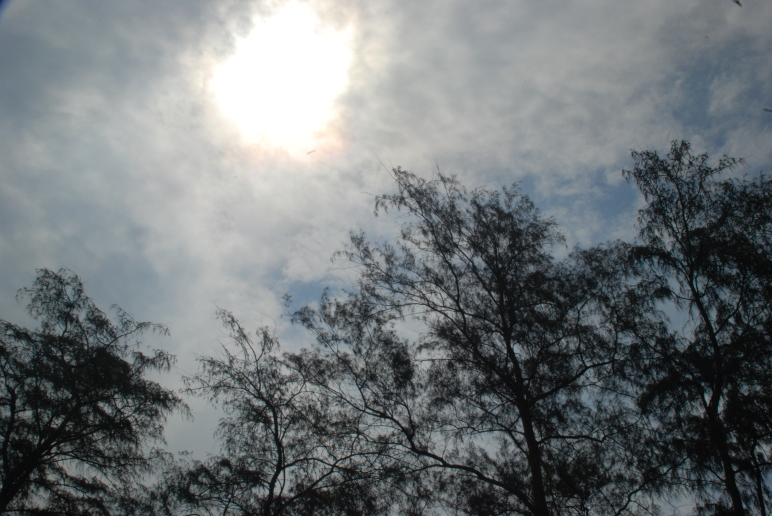
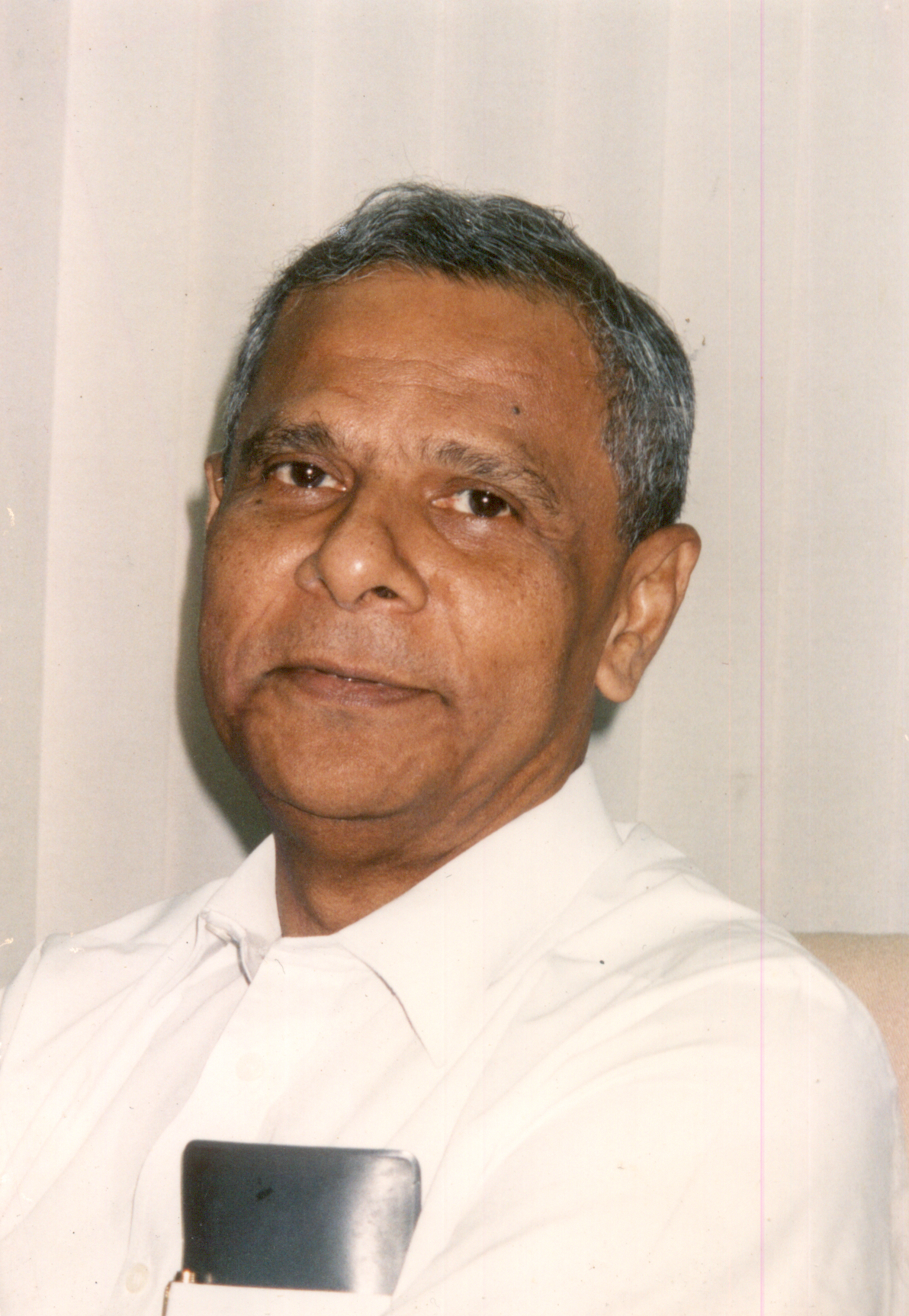
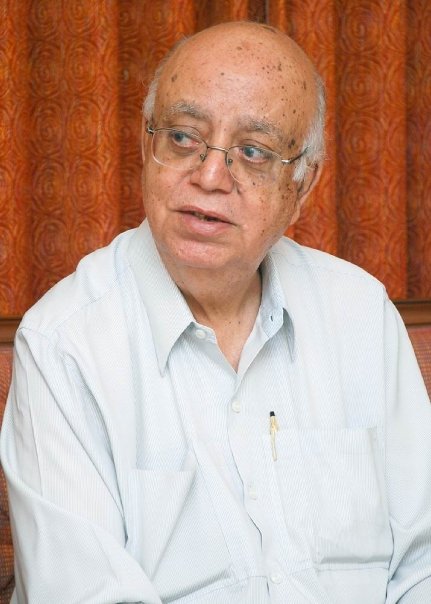
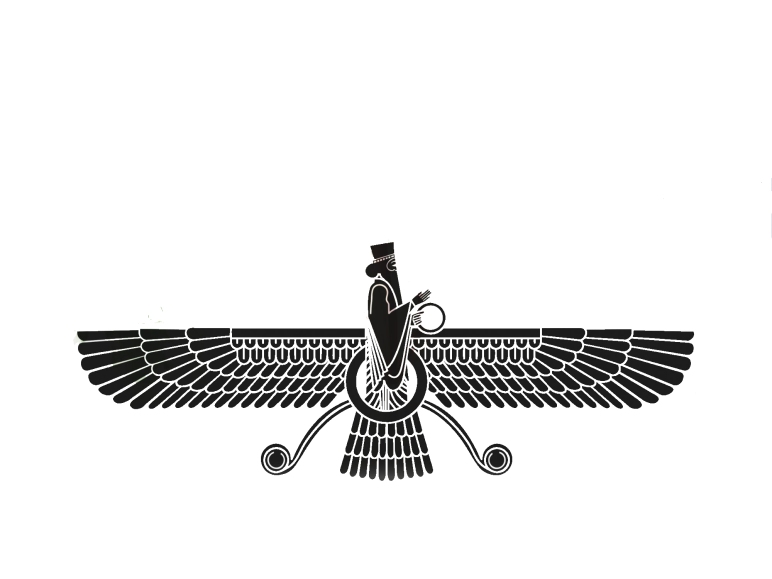
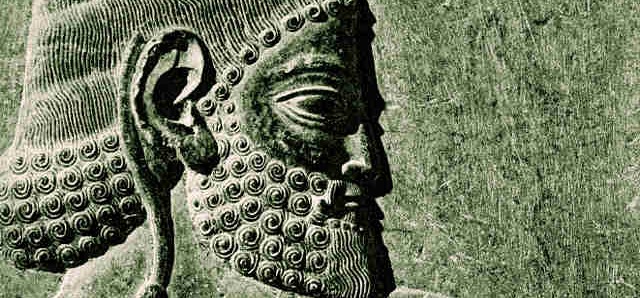
You must be logged in to post a comment.